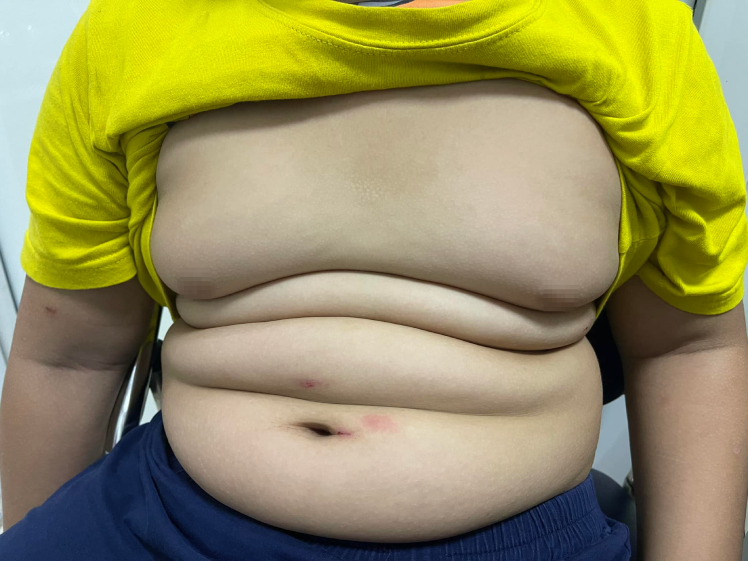Nguyen Thi Linh, a mother from Long Bien District, Hanoi, shared that her 12-year-old son weighs 76 kilograms, moves slowly, and often pants heavily - even when sitting still. Concerned about his health, she made a significant investment this summer, purchasing a year-long gym membership for nearly $400 and a personal training (PT) package of 100 sessions costing $2,400. After two weeks of working out with a trainer and following a controlled diet, her son lost 2 kilograms.
Linh set a goal for her son to lose 25% of his body weight within the three-month summer period. To maintain motivation and ensure results, she accompanies him for 1–2 hours each day at the gym and encourages him with small rewards during tough sessions. Despite the financial burden - which she pays in installments - she believes the investment is necessary for her son’s future health.
“I once considered giving him weight-loss supplements, but with the current chaos around dietary products, I decided to go the fitness route instead,” Linh explained.
Similarly, Le Huong from Thanh Xuan District, Hanoi, opted for an online coaching program priced at $440 for five weeks for her 11-year-old daughter, who weighs 59 kilograms. Each day, the coach provides a customized meal plan. After more than three weeks, her daughter has shed 2 kilograms and feels lighter thanks to cardio exercises and a diet of fish, lean meat, corn, sweet potato, and avocado.
Huong also buys low-calorie snacks to accommodate her daughter's cravings and closely monitors her diet. The child is enthusiastic about the meal plans provided by the coach, making the weight loss journey easier.

Early, correct intervention is key
Associate Professor Dr. Nguyen Anh Tuan, Head of Gastrointestinal Surgery at Military Central Hospital 108, said obesity affects not only a child’s physical health but also their confidence and mental well-being, potentially leading to depression. Therefore, parents must intervene early rather than wait until the child grows older.
He noted that many parents spend hundreds of millions of dong but see no results due to a lack of scientific methods and persistence.
Dr. Nguyen Trong Hung from the National Institute of Nutrition also emphasized the importance of addressing childhood obesity early. The principles of weight loss for children are similar to those for adults: reduce calorie intake and increase physical activity to burn fat.
A healthy diet must include the three macronutrient groups - protein, carbohydrates, and fat - tailored to each child’s physical needs. While exercise is crucial, it doesn’t always require expensive personal trainers. Children can burn energy and become more agile by playing soccer, badminton, swimming, cycling, or jogging.
Dr. Hung advised that personal training sessions should be limited to 2–3 times per week and alternated with other activities to prevent boredom. More importantly, parents must monitor their children’s snacking habits. Even with low-calorie main meals, unregulated snacking can undermine all weight-loss efforts.
Each child has unique energy requirements and physical conditions, so applying a standard weight-loss formula is not recommended. Overly restrictive diets may cause fatigue, brain fog, or nutrient deficiencies.
To ensure effective weight loss, parents need to accompany, motivate, and create a healthy environment for their children. Instead of relying solely on costly training programs, patience and scientific methods will help children reach a healthy weight and develop sustainable habits for lifelong well-being.
Phuong Thuy